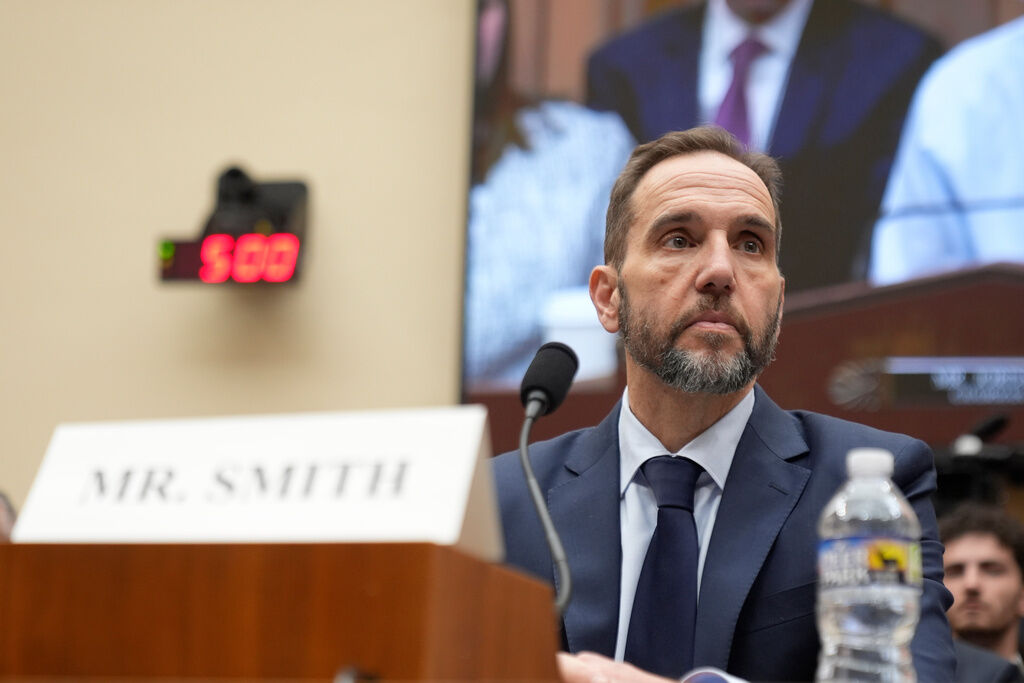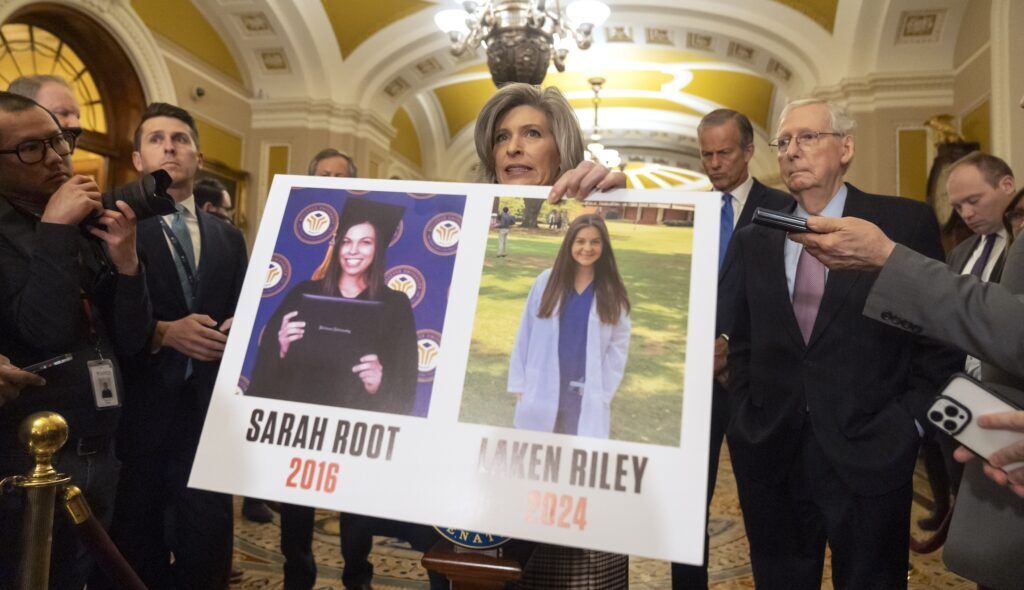Collective bargaining bill finally introduced in Colorado Senate

After more than a year in the making, a bill allowing county employees to join unions and set up collective bargaining units was finally introduced in the state Senate Monday night.
As first reported by Colorado Politics last week, Senate Bill 230, which started out as an effort to allow a wide array of public sector employees to engage in collective bargaining, is now stripped down to just affecting county workers.
Those workers do not need permission to set up unions, and in fact, four counties – Pueblo, Adams, Summit and Las Animas – already have collective bargaining agreements with their employees.
House Majority Leader Daneya Esgar, D-Pueblo, who has been the driving force for the bill, acknowledged that county employees can already join unions. But she told Colorado Politics Monday that the state needs to affirm that county workers have the right through state law. Right now, it’s up to each individual leadership in a county to decide if employees have the right to do this, she said.
“We’re saying as a state all county employees have this right. Just because there’s good acting counties already doesn’t negate the need for this in other areas where maybe there’s not good acting county commissioners,” she explained.
The bill would affect about 38,000 county employees across all of Colorado’s 64 counties.
A fact sheet from a coalition of unions – AFT Colorado, the American Association of University Professors, Colorado WINS and Council 18 of the American Federation for State, County and Municipal Employees – says the bill would allow workers to be recognized and negotiate over key employment elements, such as course and caseloads, safety protocols, wages, benefits and other aspects of employment. In addition, workers cannot be fired or discriminated against for organizing or participating in a union, and both sides must negotiate in good faith.
If issues cannot be agreed upon, the employees and employer enter non-binding mediation and possibly fact-finding. The bill does not force an employer to accept a contract it does not agree to, whether through arbitration or other dispute resolutions, and explicitly reserves final budget and fiscal matters to the employer, according to the fact sheet.
Senate President Steve Fenberg, D-Boulder, the bill’s Senate sponsor, noted the long process for getting the bill out, claiming the sponsors intentionally did not introduce the measure earlier because they wanted to have conversations with all stakeholders.
That’s been a bone of contention for representatives of higher education, as well as counties, which claimed their concerns, particularly around cost, have been ignored and described the process as little more than being told what the bill would do. Fenberg and Esgar denied that claim, saying the counties’ chief representative, Colorado Counties, Inc., never gave them any feedback on what the group wanted to see in the bill.
Colorado Counties, Inc., which represents 62 out of the state’s 64 counties, opposes SB 230.
However, Esgar acknowledged that another organization, Counties & Commissioners Working Together, has negotiated the bill with the sponsors.
CCAT claims to be a nonpartisan entity, but out of its 13 executive board and governing board members, all but two are Democrats and only one is a Republican. According to the Secretary of State’s lobbyist database, CCAT is in an “amend” position on SB 230.
Fenberg said the bill is a strong one, and predicted it will pass and Gov. Jared Polis will sign it into law. County workers, he said, were at the forefront of keeping communities functioning during the pandemic.
“They’re a critical segment that deserve the same rights that every other private sector worker and state worker already enjoys, and that’s the option to create a union,” he said.
The bill is similar to legislation that Democrats in the General Assembly passed last year that allowed Colorado WINS to engage in collective bargaining on behalf of state employees, he added.
SB 230 lays out the process for workers to form and join a union, similar to the one employed by private sector workers. They must hold an election, have the election certified, and then figure out what to negotiate for.
Fenberg said the county is not forced to sign a contract, as is the case with the private sector, where employees can go out on strike.
While the bill has language prohibiting strikes, work slowdowns or stoppages, county commissioners said last week the measure appears to only apply to an “exclusive representative,” which they view as a union leader, not an employee, and that employees could choose to go out on strike. Fenberg said “exclusive representative” is not a person, but the entire union, and that he would consider clarifying the matter.
Opposition from CCI and its county commissioner members have centered around the cost of setting up unions and enhancing wages and benefits.
Phillips County Commissioner Terry Hofmeister said last week that his small county, with just 47 employees, would have to hire an attorney and a human resources person who specializes in collective bargaining, a cost his county can’t afford and one that could lead to layoffs or cutbacks in services or both.
Fenberg said that if the union comes to the county with a contract, and the county can’t afford it, “the county commissioners can just walk away.” He added lawmakers wanted to give that same control of the budget to the individual counties that the General Assembly has on the state budget and any benefits negotiated by Colorado WINS for state employees. The state also has the ability to say when it cannot afford changes tied to the state contract, Fenberg said.
He said he believes some smaller counties won’t have unions.
“But if the conditions are so that conservative workers in rural Colorado want to form a union, I’m guessing that they’d probably have a reason” to do so, he said.
The introduction of SB 230 also raises questions about the political calculation the sponsors took by starting it in the Senate, where Republicans are less likely to spend lengthy hours fighting it. The bill, should it pass that chamber, would head into the House in the final 10 days of the 2022 session and in front of House Republicans, who see it as a target for a variety of purposes.
House Minority Leader Hugh McKean of Loveland told Colorado Politics SB 230 is the epitome of what is not good about legislation, especially this late in the session. McKean said his caucus is vehemently opposed to a bill that seeks a solution to a problem that does not exist.
He said the issue right now is how to stabilize jobs, particularly with high inflation and a possible recession on the way. County employees have great jobs and great benefits, McKean said, adding Republicans are “not hearing a clamor from county employees to unionize” or that there have been hearings where county employees claim they’re being mistreated and need representation.
McKean also pointed out that the bill is a nod to AFL-CIO Colorado, which threatened last July to withhold campaign donations to state Democrats through mid-May 2022 unless Democrats made better efforts to partner with unions.
“Here we are at the end of April and it sure seems fishy that suddenly there’s a bill to give unions a huge amount of power,” McKean said, adding that counties have been among the few to push back against Polis and the Democrats on some aspects of their agendas.
“There’s no love lost between Polis and the counties,” the Republican leader added.
SB 230 is slated for its first hearing on Wednesday in the Senate Business, Labor and Technology Committee.














